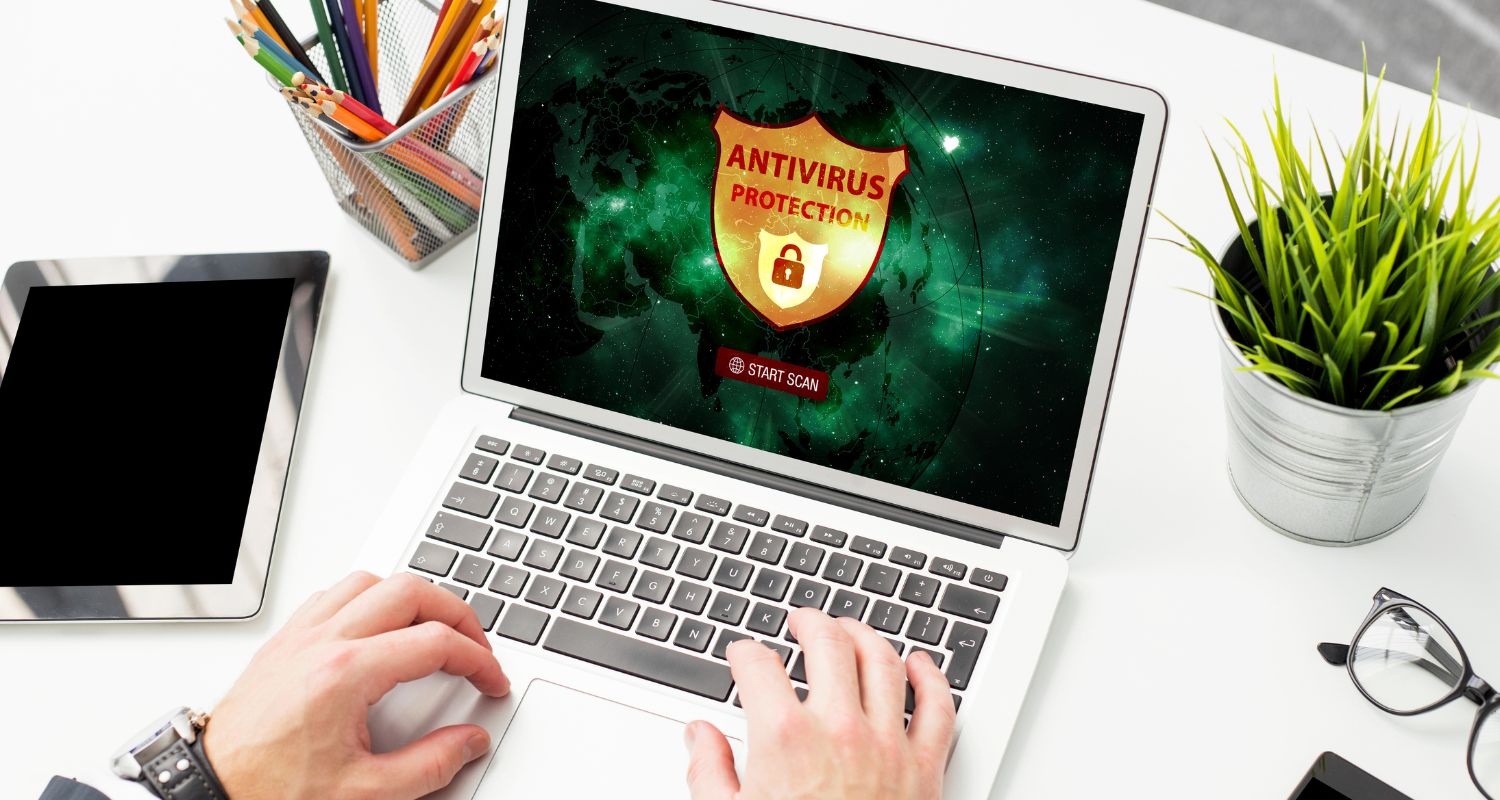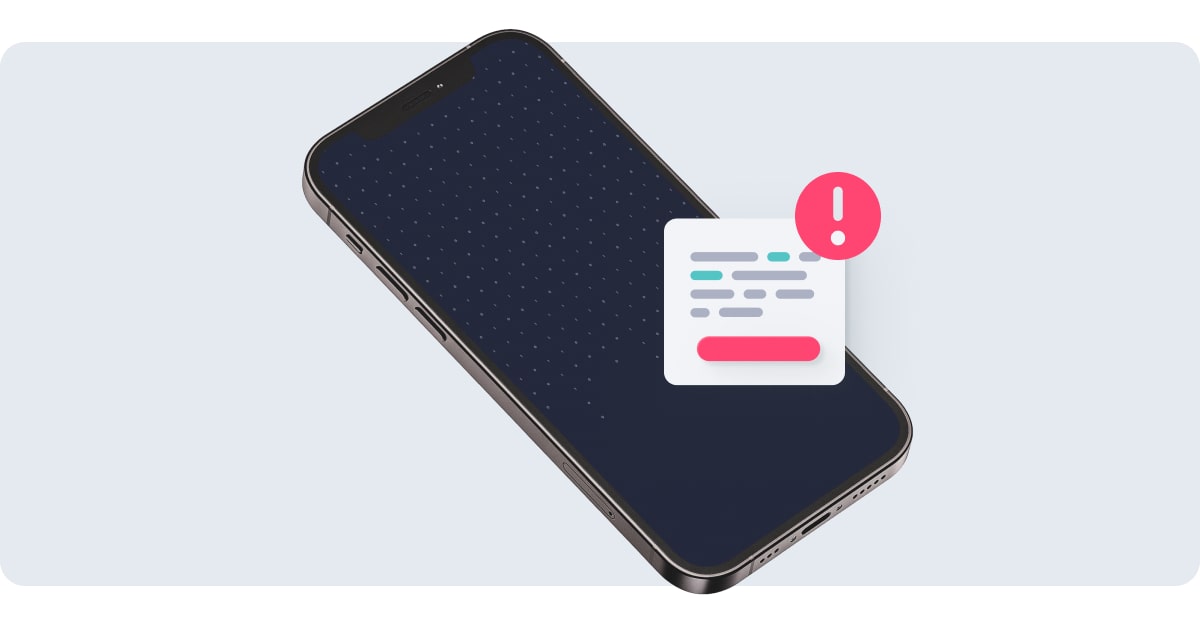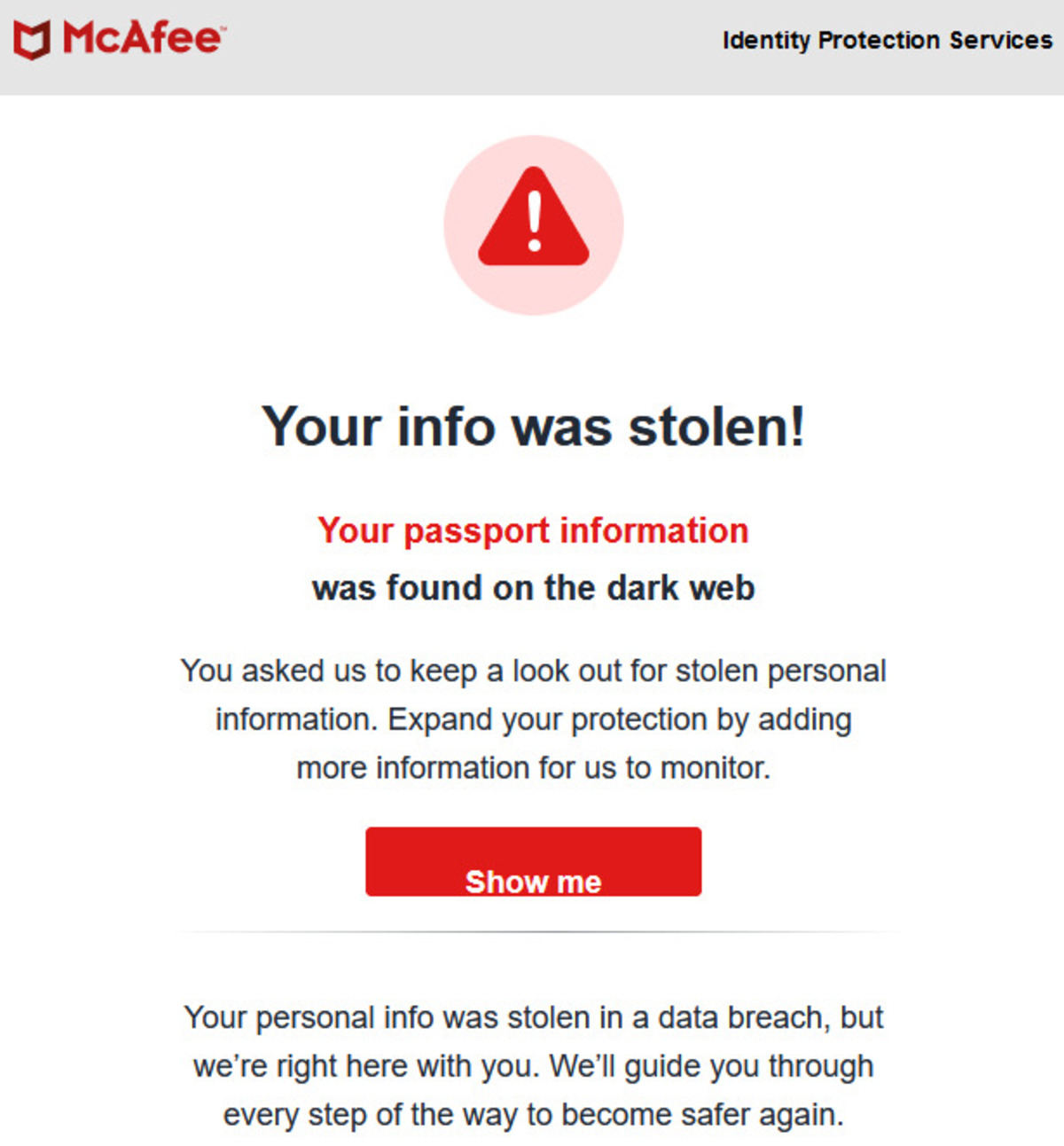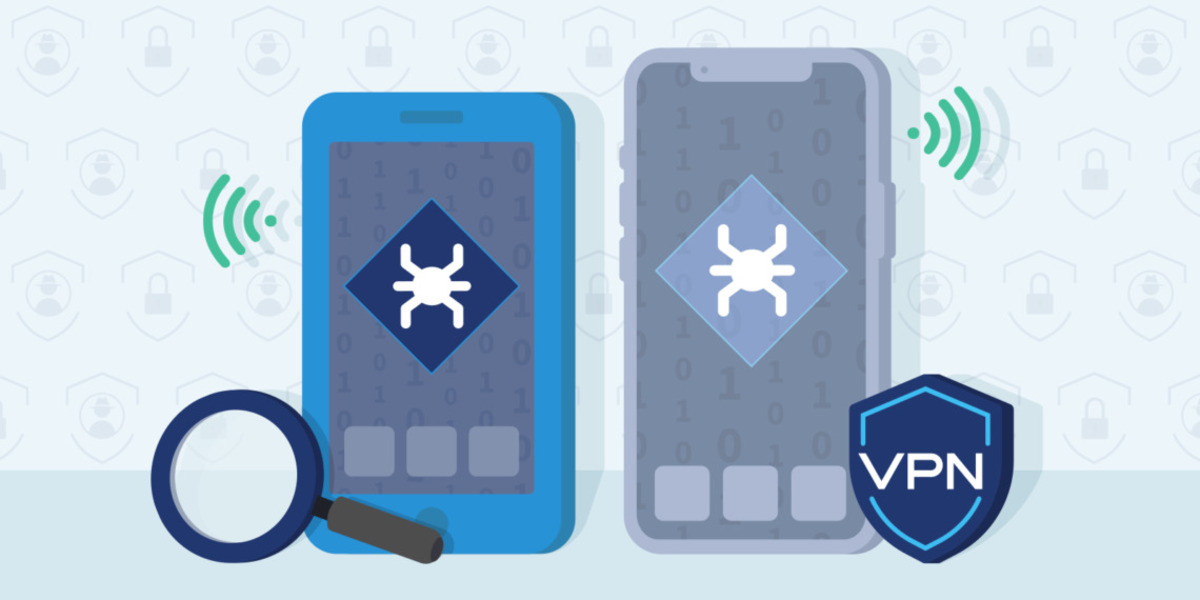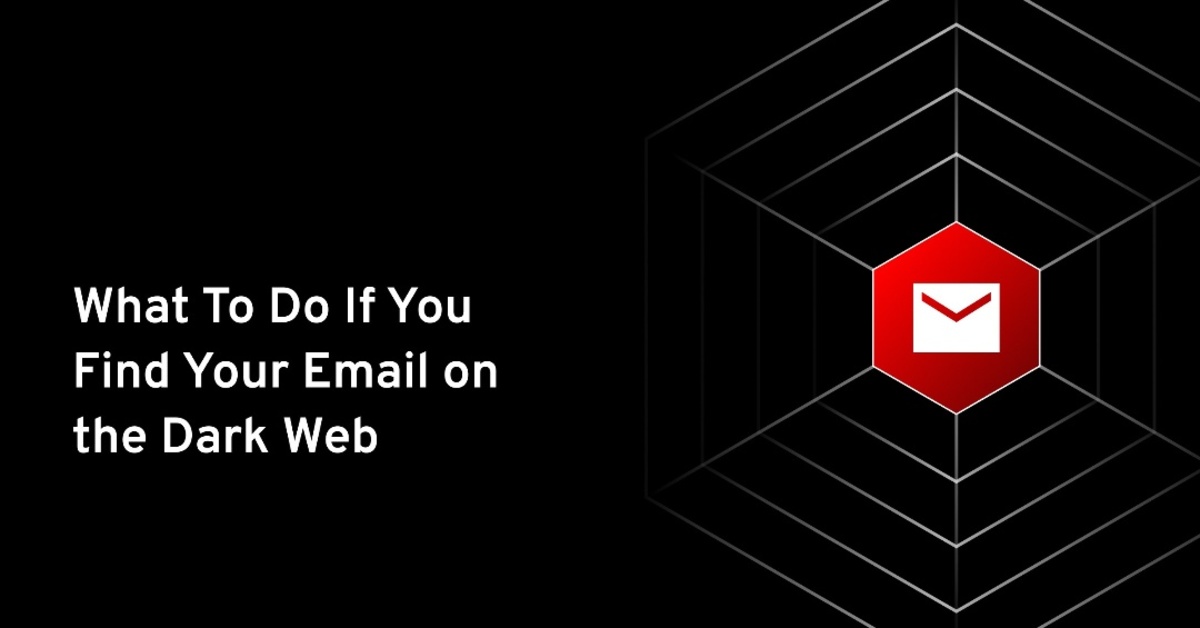Introduction
The digital age has brought about many conveniences, but it has also given rise to new threats and risks. One of these threats is the emergence of the Dark Web, a hidden part of the internet where illegal activities thrive. Not only does the Dark Web host illegal marketplaces and forums, but it’s also a breeding ground for the sale and exchange of personal information.
One alarming discovery that internet users have made is the presence of their phone numbers on the Dark Web. This revelation raises concerns about potential risks and consequences. If your phone number is found on the Dark Web, it is essential to understand what it means and take steps to protect yourself.
In this article, we will delve into the topic of having your phone number found on the Dark Web. We will explore what the Dark Web is, how phone numbers end up on the Dark Web, and the possible consequences of this exposure. Moreover, we will discuss the steps you can take to protect your phone number and reduce the risk of falling victim to scams, identity theft, and unwanted solicitations.
By the end of this article, you will have a clearer understanding of the risks associated with your phone number being on the Dark Web and how to safeguard yourself against potential harm.
What is the Dark Web?
The Dark Web is a hidden part of the internet that is not indexed by search engines and requires special software, such as Tor, to access. Unlike the surface web, which most people are familiar with, the Dark Web is intentionally designed to keep users anonymous and transactions untraceable.
Within the Dark Web, various illegal activities take place, including the sale of drugs, weapons, stolen data, and other illicit goods and services. It serves as a marketplace for criminals and individuals seeking to engage in illegal activities without detection. The anonymity provided by the Dark Web often attracts cybercriminals, hackers, and other malicious actors.
It’s important to note that the Dark Web is just one part of the larger deep web, which includes websites and content that are not indexed by traditional search engines. The deep web itself is not inherently illegal, as it also includes legitimate platforms like online banking portals, restricted access websites, and private company networks.
The Dark Web operates on a layered network architecture that allows users to access websites with the .onion extension. These websites have unique URLs that are hard to remember and contain a random string of characters and numbers. By using Tor or similar software, users can visit these .onion websites and participate in anonymous transactions.
While the Dark Web is often associated with criminal activities, it’s essential to recognize that not all users of the Dark Web engage in illegal behavior. Journalists, researchers, and activists also utilize the Dark Web to communicate securely and access information in countries with strict internet censorship.
Despite its anonymous nature, law enforcement agencies around the world work tirelessly to uncover and shut down illegal activities on the Dark Web. However, the constantly evolving nature of the Dark Web, along with the challenges of tracking and identifying individuals, makes it a complex and ongoing battle.
How do Phone Numbers End up on the Dark Web?
The presence of phone numbers on the Dark Web can be attributed to various factors, including data breaches, hacking incidents, and the sale of personal information. Here are some of the common ways that phone numbers end up on the Dark Web:
- Data Breaches: Large-scale data breaches have become increasingly common in recent years. When organizations suffer these breaches, cybercriminals gain access to vast amounts of personal data, including phone numbers. The stolen information is then often sold on the Dark Web for financial gain.
- Hacking and Phishing Attacks: Hackers and scammers employ various techniques to obtain phone numbers from unsuspecting individuals. They may use phishing emails or text messages to trick people into revealing their phone number or use tactics like SIM swapping to take control of someone’s phone number.
- Insider Threats: Sometimes, individuals within organizations with access to sensitive data may abuse their privileges and leak phone numbers to the Dark Web. This can be motivated by financial gain or involvement in illicit activities.
- Third-Party Data Sharing: In some cases, phone numbers may end up on the Dark Web due to the unauthorized or negligent sharing of data by third-party service providers or apps. These entities may collect and sell or share users’ personal information without their knowledge or consent.
- Social Engineering: Social engineering is a psychological manipulation technique aimed at tricking individuals into divulging sensitive information. Scammers may use fake phone calls or messages, pretending to be from a legitimate organization, to obtain phone numbers and other personal data.
Once phone numbers are on the Dark Web, they may be bundled and sold as part of larger databases containing additional personal information. These databases are often acquired by cybercriminals looking to profit from identity theft, fraud, and other illicit activities.
It’s crucial to understand that anyone’s phone number can end up on the Dark Web, regardless of how cautious they may be. All it takes is one data breach or a moment of vulnerability for personal information to fall into the wrong hands.
Possible Consequences of Having Your Phone Number on the Dark Web
The exposure of your phone number on the Dark Web can have serious implications for your privacy, security, and financial well-being. Here are some of the potential consequences you may face:
- Identity Theft and Fraud: Cybercriminals can exploit your phone number to carry out identity theft and fraud. They might use your number to impersonate you, gain unauthorized access to your accounts, or conduct fraudulent activities in your name. This can lead to financial loss, damage to your credit score, and a lengthy battle to regain your identity.
- Selling Personal Information: Once your phone number is on the Dark Web, it may be bundled with other personal data and sold to interested buyers. These buyers could include other cybercriminals, telemarketers, or spammers who will bombard you with unsolicited calls, messages, or offers.
- Harassment and Threats: In some cases, individuals who obtain your phone number from the Dark Web might use it to harass, threaten, or intimidate you. This can be particularly distressing and may require taking legal action or involving law enforcement to ensure your safety.
- Spam and Unsolicited Calls: Your phone number may end up on various telemarketing lists if it is exposed on the Dark Web. This can result in an influx of spam calls and unwanted solicitations, disrupting your daily life and making it difficult to trust incoming calls from unfamiliar numbers.
- Targeted Scams: Scammers who have access to your phone number may utilize it as part of targeted phishing or social engineering attacks. They might send messages or make calls purporting to be from legitimate institutions, tricking you into sharing sensitive information or making financial transactions.
It is important to understand the potential consequences of having your phone number on the Dark Web to take appropriate measures to protect yourself. By being aware of the risks, you can be proactive in safeguarding your personal information and minimizing the impact of a potential breach.
Identity Theft and Fraud
One of the most significant risks of having your phone number on the Dark Web is the potential for identity theft and fraud. Cybercriminals can use your phone number as a piece of the puzzle to carry out various malicious activities. Here’s how exposure on the Dark Web can lead to identity theft and fraud:
Impersonation: With access to your phone number, scammers can pretend to be you by hijacking your online accounts or even creating new accounts in your name. They might use this false identity to gain access to sensitive information, make unauthorized transactions, or spread malicious content.
Account Takeovers: Armed with your phone number, cybercriminals can attempt to take control of your online accounts. They may exploit weak passwords, security vulnerabilities, or use social engineering techniques to reset passwords and gain unauthorized access. Once they have control, they can perform fraudulent activities, make unauthorized purchases, or exploit your personal information.
Fraudulent Activities: Your phone number can be used in various fraudulent schemes, such as opening lines of credit, taking out loans, or engaging in financial transactions on your behalf. Cybercriminals may use your personal information, including your phone number, to make it appear legitimate while conducting illegal activities.
Tax Fraud: With access to your phone number, cybercriminals can also commit tax fraud. They may file fraudulent tax returns in your name, claiming refunds and diverting them to their own accounts. This can lead to financial loss and potentially trigger investigations by tax authorities.
Phishing Attacks: Armed with your phone number, scammers can create targeted phishing campaigns. They might send text messages or make phone calls, pretending to be from legitimate organizations, and trick you into providing personal information, such as passwords or credit card details. This information can then be used to commit further identity theft or financial fraud.
Preventing Identity Theft and Fraud: To protect yourself from identity theft and fraud, it’s crucial to take proactive measures. Regularly monitor your financial accounts, maintain strong and unique passwords, enable two-factor authentication whenever possible, and be cautious about sharing personal information. Additionally, regularly check your credit report for any suspicious activities that might indicate identity theft.
By being vigilant and proactive, you can minimize the risk of falling victim to identity theft and fraud resulting from having your phone number on the Dark Web. Regularly monitoring and protecting your personal information is essential in an increasingly interconnected and digital world.
Selling Personal Information
When your phone number ends up on the Dark Web, it becomes a valuable commodity for cybercriminals and other malicious actors. One common use of this information is to package and sell personal data on underground marketplaces. Here’s how the sale of personal information can impact you:
Unwanted Solicitations: Once your phone number is available on the Dark Web, it may be sold to telemarketers, spammers, and scammers. You may start receiving a barrage of unsolicited calls, text messages, and emails with offers, promotions, or fraudulent schemes. These unwanted solicitations can not only be annoying but may also expose you to potential scams and identity theft attempts.
Targeted Advertising: Companies looking to advertise their products or services may purchase databases that include phone numbers from the Dark Web. This can result in more targeted advertisements, where you receive messages specific to your interests or demographics. While not inherently harmful, it can lead to a loss of privacy and an increased potential for manipulative marketing tactics.
Third-Party Data Brokers: Your phone number on the Dark Web may be acquired by data brokers who compile and sell vast amounts of personal information to individuals, organizations, or marketers. This information can be used to create detailed profiles about individuals’ preferences, habits, and behaviors. These profiles can be leveraged for targeted marketing campaigns or even to inform decisions regarding employment, insurance, or creditworthiness.
Increased Vulnerability to Phishing: With knowledge of your phone number, scammers can launch phishing attacks customized to appear more convincing and trustworthy. They may use your phone number as part of their schemes, sending messages or making calls to trick you into revealing sensitive information, such as passwords, account numbers, or Social Security numbers.
Protecting Against the Sale of Personal Information: While you may have limited control over the sale of your phone number once it is on the Dark Web, there are steps you can take to minimize its impact. Be cautious about sharing personal information online, use privacy settings on social media platforms, and carefully consider what information you provide to third-party services. Additionally, regularly monitor your online accounts and credit reports for any signs of unauthorized activity.
By being proactive and vigilant, you can reduce the potential consequences of having your phone number sold on the Dark Web. While you may not be able to stop the sale of your information entirely, taking precautions can go a long way in protecting your privacy and minimizing the risks associated with the sale of personal information.
Harassment and Threats
One of the disturbing consequences of having your phone number on the Dark Web is the increased risk of harassment and threats. Malicious individuals who obtain your phone number can use it as a tool to intimidate or harm you. Here are some ways in which exposure on the Dark Web can lead to harassment and threats:
Stalking and Intimidation: Cybercriminals and malicious actors may use your phone number to track your online activities, monitor your whereabouts, and gather additional personal information. This information can be used to harass or intimidate you, invading your privacy and causing emotional distress.
Extortion and Ransom: Possessing your phone number gives criminals the means to engage in extortion or ransom attempts. They may threaten to release personal information, share embarrassing content, or distribute intimate photos unless a ransom is paid. This type of harassment can not only have severe emotional consequences but can also impact your reputation and personal relationships.
Doxxing: Doxxing refers to the act of publicly revealing someone’s personal information online, including their phone number. Cyberbullies or malicious individuals could expose your phone number on various platforms, making you vulnerable to harassment or unwanted contact from strangers.
Cyberstalking: With your phone number in their possession, those with malicious intent can engage in cyberstalking. They may repeatedly call, text, or message you with harmful or threatening content. This persistent harassment can instill fear, disrupt your daily life, and force you to modify your communication habits.
Steps to Counter Harassment and Threats: If you find yourself being harassed or threatened due to your phone number being on the Dark Web, it is important to take action to protect yourself. Report any instances of harassment to your local authorities, who can assist in investigating and pursuing legal action against the perpetrators. Additionally, block and ignore any communications from unknown or suspicious numbers, and consider changing your phone number if the harassment persists.
It is crucial to prioritize your safety and well-being when faced with harassment and threats resulting from having your phone number exposed on the Dark Web. Reach out to support networks, such as friends, family, or mental health professionals, to help you navigate through these distressing situations and take necessary steps to regain your peace of mind.
Spam and Unsolicited Calls
One of the common consequences of having your phone number on the Dark Web is an increase in spam calls and unsolicited communications. When your phone number is exposed on the Dark Web, it becomes a prime target for telemarketers, scammers, and spammers. Here’s how this exposure can lead to an influx of spam and unsolicited calls:
Telemarketing Calls: Your phone number may be sold to telemarketing companies who specialize in making unsolicited sales calls. These calls can be a nuisance, disrupting your daily life and consuming your time. While some telemarketing calls may be legitimate, many are intrusive and attempt to sell products or services you have no interest in.
Robocalls and Automated Messages: Robocalls, or automated pre-recorded messages, are frequently associated with spam calls. Cybercriminals can use your phone number to initiate massive robocall campaigns, which can lead to a flood of unwanted and repetitive messages. These calls may try to deceive you into providing personal information or make false claims about winning prizes or resolving urgent matters.
Phishing Attempts: Unsolicited calls may also be a front for phishing attempts. Scammers might pretend to be from reputable organizations, such as financial institutions or government agencies, seeking to gather personal information or access your accounts. They can use your phone number as part of their strategy to appear convincing and gain your trust.
Caller ID Spoofing: Having your phone number available on the Dark Web makes it easier for scammers to engage in caller ID spoofing. They can manipulate the caller information displayed on your phone to make it seem like the call is coming from a trusted source or a local phone number. This tactic aims to trick you into answering the call or providing sensitive information.
Protecting Against Spam and Unsolicited Calls: There are several steps you can take to protect yourself from spam and unsolicited calls resulting from the exposure of your phone number on the Dark Web. Register your number with the national Do Not Call Registry, which can help reduce the number of telemarketing calls you receive. Additionally, consider using call-blocking apps or enabling the built-in call-blocking features on your phone to filter out known spam numbers.
Remember to be cautious when sharing your phone number online or with unknown sources. Read the privacy policies of apps and services you use to understand how they handle your personal information. By adopting these precautions, you can minimize the impact of spam and unsolicited calls and maintain better control over your phone’s usability.
Steps to Protect Your Phone Number from the Dark Web
Protecting your phone number from ending up on the Dark Web requires proactive measures and ongoing vigilance. Here are some steps you can take to minimize the risk of your phone number falling into the wrong hands:
- Regularly Monitor Your Online Presence: Keep an eye on your online accounts, social media profiles, and any websites where your phone number may be listed. Respond promptly to any suspicious activity or unauthorized changes to your information.
- Use Strong and Unique Passwords: Create strong, unique passwords for all your online accounts, including email, social media, and banking platforms. Avoid using the same password across multiple accounts, and consider using a password manager to securely store your credentials.
- Enable Two-Factor Authentication: Whenever possible, enable two-factor authentication (2FA) on your online accounts. This adds an extra layer of security by requiring a second verification step, such as a unique code sent to your phone, in addition to your password.
- Be Mindful of What Information You Share Online: Be cautious about sharing personal information, including your phone number, on public forums, social media platforms, or unsecured websites. Limit the amount of personal information you disclose, as it can be used to piece together your identity.
- Be Wary of Suspicious Emails and Messages: Exercise caution when receiving emails or text messages from unfamiliar or suspicious sources. Avoid clicking on links or downloading attachments from these messages, as they might be phishing attempts or contain malware. When in doubt, contact the sender directly using verified contact information.
- Be Selective in Providing Your Phone Number: Only provide your phone number to trusted and reputable sources. Read privacy policies and understand how your information will be used and protected before sharing it with any organization or service provider.
- Consider Using Virtual Phone Numbers: Virtual phone numbers can provide an additional layer of privacy and security. These numbers can be used for specific purposes, such as online transactions or signing up for services, while keeping your personal phone number separate and protected.
By implementing these steps, you can reduce the likelihood of your phone number ending up on the Dark Web and decrease the potential risks associated with its exposure. Maintaining a proactive approach to protecting your personal information is key to safeguarding your privacy and security in the digital age.
Regularly Monitor Your Online Presence
Regularly monitoring your online presence is essential in protecting your phone number and personal information from appearing on the Dark Web. By staying vigilant and proactive, you can detect any signs of potential compromise and take immediate action. Here’s why and how to monitor your online presence:
Identify Data Breaches: Data breaches occur frequently, and your personal information, including your phone number, may be compromised without your knowledge. Regularly check for news or alerts about data breaches that may affect the websites or services you use. If a breach is reported, act swiftly to change passwords and monitor your affected accounts for any unauthorized activity.
Set Up Google Alerts: Utilize Google Alerts to track mentions of your phone number or any other personal identifiers online. By setting up alerts with your phone number as a keyword, you can receive notifications when it appears on websites, forums, or other online platforms. This can be an early warning system for potential exposure on the Dark Web.
Monitor Social Media Privacy Settings: Regularly review and adjust your privacy settings on social media platforms to control the visibility of your personal information. Be selective about whom you allow access to your phone number or other contact details and limit public access to sensitive data. Keep in mind that even seemingly innocent information shared on social media can be used by cybercriminals to piece together your identity.
Check Your Digital Footprint: Perform periodic searches of your name, phone number, and any other personal information online. This can help you identify any websites, directories, or listings where your phone number may be publicly visible. If you find your phone number on websites you didn’t authorize, contact the site administrators to request removal or follow the specified procedures for data removal.
Monitor Online Accounts: Regularly review your online accounts and look for any signs of unauthorized activity. Check your bank statements, credit card statements, and other financial accounts for any suspicious transactions. If you notice any discrepancies or unfamiliar activities, report them immediately to the respective financial institution or service provider.
Consider Identity Monitoring Services: Identity monitoring services can help detect any signs of potential identity theft or unauthorized use of your personal information. These services often provide regular reports and alerts regarding changes in your credit history, public records, or online exposure. Consider subscribing to such services for added peace of mind.
By regularly monitoring your online presence, you can quickly identify and address any issues that may arise. Being proactive about your online security helps mitigate the risk of having your phone number on the Dark Web and allows you to take necessary measures to protect your personal information.
Use Strong and Unique Passwords
Using strong and unique passwords is vital for protecting your phone number and other online accounts from unauthorized access and potential exposure on the Dark Web. Cybercriminals often exploit weak or reused passwords to gain access to personal information. Here are some reasons why strong and unique passwords are crucial and how to create and manage them effectively:
Protect Against Brute-Force Attacks: Brute-force attacks involve automated tools that systematically try various combinations of passwords until the correct one is discovered. Strong passwords with a combination of uppercase and lowercase letters, numbers, and special characters make it significantly more difficult for attackers to crack them through these methods.
Avoid Password Guessing: Weak passwords, such as “123456” or “password,” are incredibly insecure as they are easily guessed by attackers. Avoid using common words, sequential numbers, or personally identifiable information (such as birthdays or names) as passwords. Instead, opt for complex and unpredictable combinations.
Prevent Credential Stuffing: Credential stuffing is a tactic where attackers use stolen login credentials from one site to attempt access to other online accounts. If you reuse passwords across multiple accounts and one of those accounts is compromised or exposed on the Dark Web, your other accounts become vulnerable. Using unique passwords for each account minimizes this risk.
Implement Password Managers: It can be challenging to remember numerous complex passwords for different accounts. Consider using a password manager that securely stores all your passwords in an encrypted vault. This way, you only need to remember a single master password to access all your account credentials.
Enable Two-Factor Authentication (2FA): Two-factor authentication adds an extra layer of security by requiring a second form of verification in addition to your password. This can be a code generated by an authenticator app, a text message code, or a biometric factor such as a fingerprint or facial recognition. Enable 2FA whenever it is available to provide an additional safeguard for your accounts.
Regularly Update and Change Passwords: It’s crucial to update your passwords regularly, especially if you suspect any compromise or exposure. Additionally, change passwords immediately after a data breach related to a service or platform you use. Regularly rotating your passwords reduces the risk of unauthorized access and helps protect your phone number and personal information.
Secure Password Storage: Avoid writing down passwords on physical notes or storing them in vulnerable locations such as unencrypted text files. Instead, rely on password managers or encrypted storage options to ensure the safety of your passwords.
By using strong and unique passwords, implementing password managers, and enabling two-factor authentication, you significantly enhance the security of your online accounts. Taking these steps helps protect your phone number and personal information, reducing the risk of exposure on the Dark Web and potential unauthorized access to your sensitive data.
Enable Two-Factor Authentication
Enabling two-factor authentication (2FA) is a crucial step in bolstering the security of your online accounts, including those associated with your phone number. 2FA provides an additional layer of protection by requiring a second form of verification in addition to your password. Here’s why enabling 2FA is essential and how to set it up effectively:
Enhanced Account Security: 2FA significantly enhances the security of your online accounts by adding an extra step for verification. Even if cybercriminals obtain your password, they will be unable to access your account without the second factor, such as a unique code generated by an authenticator app or received via text message.
Protection Against Credential Theft: In cases where your login credentials are compromised or leaked on the Dark Web, 2FA serves as a vital defense. It helps prevent unauthorized access to your accounts, including those associated with your phone number, even if your password has been exposed.
Easy Setup: Setting up 2FA is typically straightforward and user-friendly. Most online platforms offer options to enable 2FA within their account settings or security preferences. You can choose between different authentication methods, such as authenticator apps (e.g., Google Authenticator, Authy) or receiving verification codes via text message.
Use Authenticator Apps: Authenticator apps provide a secure and reliable way to generate time-based, one-time passcodes for 2FA. Download a reputable authenticator app on your mobile device and link it to your accounts. When prompted, the app will generate a unique code that you will need to input along with your password during the authentication process.
Text Message Verification Codes: Some platforms offer 2FA by sending verification codes via text message to your registered phone number. When logging in, you will receive a unique code that you must enter to complete the authentication process. While convenient, note that SMS-based 2FA can be susceptible to SIM swapping attacks, where criminals attempt to gain control of another person’s SIM card.
Backup Codes: Always make sure to save or print any backup codes offered by the platform during the 2FA setup process. These codes can be used as a backup method to log in if you don’t have access to your primary device or authentication app.
Remember Your Authenticator App: If you choose to use an authenticator app for 2FA, remember to regularly back up the app’s settings or recovery codes. Losing your device without any backup options can lock you out of your accounts. Storing the backup securely or transferring it to a new device when needed ensures continuity of 2FA protection.
Enable 2FA on Multiple Accounts: Extend the benefits of 2FA to as many online accounts as possible, including email, social media, banking, and other platforms associated with your phone number. Each account that has 2FA enabled further strengthens your overall security posture.
By enabling two-factor authentication, you greatly fortify the security of your online accounts, including those linked to your phone number. It provides an extra layer of protection against unauthorized access, reducing the risk of exposure to the Dark Web and potential compromise of your personal information.
Be Mindful of What Information You Share Online
In today’s digital age, it is crucial to be mindful of the information you share online to protect your phone number and personal privacy. Carelessness in sharing personal details can inadvertently expose your phone number, making it vulnerable to exploitation on the Dark Web. Here are some essential tips to consider:
Limit Personal Information on Social Media: Be cautious about the personal information you share on social media platforms. Avoid posting your phone number directly or in public conversations. Ensure your privacy settings are configured to restrict access to your personal information to trusted connections only.
Think Twice Before Sharing Online: Always pause and think before sharing personal information online, especially when it comes to your phone number. Question whether sharing your phone number is necessary and if the potential benefits outweigh the potential risks of exposing your contact information.
Be Skeptical of Online Forms and Surveys: Exercise caution when providing your phone number in online forms and surveys. Ensure that the website or platform requesting your phone number is reputable and has a secure connection (look for “https” in the URL). Read the privacy policy to understand how your information will be used and protected.
Beware of Phishing Attempts: Be vigilant for phishing attempts that attempt to trick you into providing personal information, including your phone number. Be skeptical of unsolicited emails, text messages, or phone calls requesting your phone number, especially from unfamiliar sources. Verify the legitimacy of the request before sharing any sensitive information.
Consider Using Alternate Contact Methods: Evaluate if there are alternative ways to provide contact information instead of sharing your personal phone number. For example, you can use a dedicated email address or temporary phone number for online registrations, subscriptions, or services where providing contact information is necessary but not critical.
Review Privacy Settings and Permissions: Regularly review the privacy settings and permissions on your online accounts and mobile applications. Understand what information is being collected and shared, and adjust the settings to control how much of your personal data is accessible to others.
Trustworthy Websites and Encryption: When sharing your phone number online, ensure that you are interacting with trustworthy websites that utilize encryption (look for the padlock symbol in the URL). Encryption helps protect your information in transit, making it harder for malicious actors to intercept and misuse your phone number.
Guard Your Phone Number Offline: Be mindful of who you provide your phone number to in offline situations as well. Only share it with trusted individuals, businesses, organizations, or professionals who have a legitimate need for it. Avoid sharing your phone number on public notice boards or in other public spaces where it can be easily accessed or seen.
By being cautious and selective in the information you share online, you can reduce the risk of your phone number ending up on the Dark Web. By maintaining control over your personal information, you better protect your privacy and minimize potential exposure to scams, identity theft, and unwanted solicitations.
Conclusion
Protecting your phone number from the Dark Web is an essential aspect of maintaining your online privacy and security. By understanding the risks and taking proactive measures, you can minimize the likelihood of your phone number appearing on the Dark Web and reduce potential harm. Be cautious about sharing personal information online, including your phone number, and regularly monitor your online presence for any signs of compromise.
Take steps to strengthen your account security, such as using strong and unique passwords, enabling two-factor authentication, and being mindful of the information you share online. Regularly review privacy settings, stay informed about data breaches, and promptly report any suspicious activities to the appropriate authorities.
Remember that the Dark Web is only one aspect of the digital landscape, and not everyone’s phone number ends up there. However, it is important to remain vigilant and take proactive measures to protect your personal information on the internet.
By following the strategies and recommendations outlined in this article, you can significantly improve your defenses against potential threats, such as identity theft, fraud, harassment, and unwanted solicitations. Stay informed, stay proactive, and prioritize your online privacy and security to keep your phone number and personal information safe from the Dark Web and other malicious actors.









